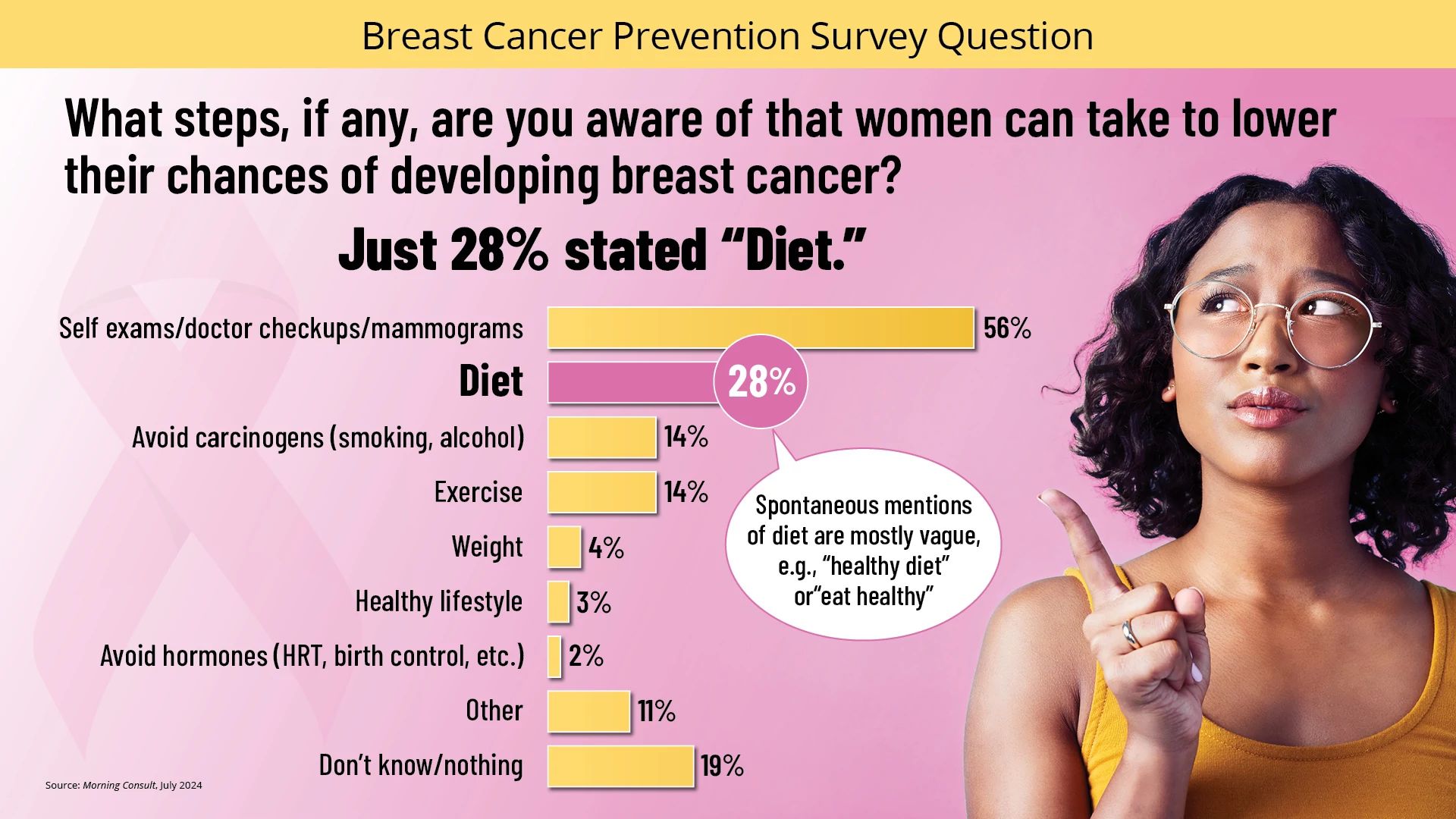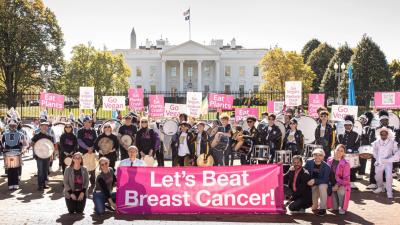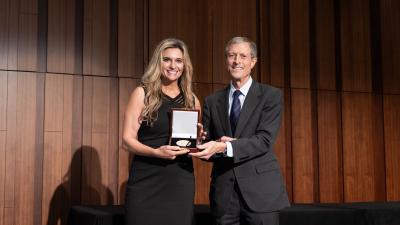As Breast Cancer Awareness Month Begins, Survey Shows Vast Majority of Women Unaware of Protective Benefits of Diet

Just 28% of U.S. women are aware that a healthful diet can lower the risk of developing breast cancer, according to a new Physicians Committee for Responsible Medicine/Morning Consult survey.
The findings show almost no increase in awareness in almost two decades of preventive steps that women can take to thwart breast cancer. In a 1995 telephone survey of 510 women, 23% cited dietary factors (reducing intake of fat or meat or increasing intake of vegetables, fruit, fiber, or vegetarian meals) as ways to reduce the risk of developing breast cancer.
The new poll included 2,017 women interviewed July 25, 2024, to July 28, 2024. When prompted with a follow-up question about which specific foods might reduce breast cancer risk, 23% mentioned vegetables, and 16% mentioned fruits. Only 17% were aware that soy products reduce breast cancer risk, while just 24% said they are aware that high consumption of dairy products increases the risk.
Dr. Kristi Funk, a breast cancer surgeon and leading prevention expert from Los Angeles, said,
“It’s clear that millions of women have yet to hear the lifesaving message that what they eat and drink strongly influences their chances of developing breast cancer. Science shows nearly 50% of cases are preventable through diet and lifestyle, at least in theory, and in my opinion, 80 to 90% of cases could be avoided.”
Studies show a whole food, plant-based diet can be preventive for breast cancer. For example, research conducted in 2010, suggests that frequent consumption of vegetables is inversely associated with risk of estrogen receptor-negative/progesterone receptor-negative breast cancer, and that specific vegetables may be associated with a decreased risk of breast cancer overall. Additionally, plant-based diets reduce the risk for breast cancer in postmenopausal women, according to research presented at a meeting of the American Society for Nutrition. Those women who followed a healthful, plant-based diet of fruits, vegetables, legumes, and whole grains the longest had the least risk of cancer compared to those who ate less healthy foods or animal products. Those who followed lower quality diets increased their risk for breast cancer.
An unhealthy diet, on the other hand, has been associated with a higher risk of breast cancer. A 2018 meta-analysis of 15 different studies showed that those with the highest (versus lowest) consumption of processed meats had a 9% higher risk of breast cancer.
Neal Barnard, MD, president of the Physicians Committee for Responsible Medicine, said, “Public education programs on breast cancer have focused on mammograms, which play a vital role, but are not enough. It is essential to empower people with steps they can take to protect themselves, and a healthy diet is at the top of the list.”
Results of the new survey also show:
•When asked about specific categories that may increase the risk of developing cancer, women were most likely to cite being overweight and high consumption of processed meats. But just 24% said they are aware that high consumption of dairy products increases the risk. Research funded by the National Cancer Institute, the National Institutes of Health, and the World Cancer Research Fund, found that women who consumed 1/4 to 1/3 cup of cow’s milk per day had a 30% increased chance of developing breast cancer. One cup per day increased the risk by 50%, and 2 to 3 cups were associated with an 80% increased chance of developing breast cancer.
•Nearly three quarters (72%) of respondents said they have never received information or education about the link between nutrition and breast cancer from a health care professional.
The Physicians Committee recommends a four-pronged approach to preventing breast cancer: Eat a whole food, plant-based diet, exercise regularly, limit alcohol and maintain a healthy weight.
In recognition of Breast Cancer Awareness season, local leaders and community members across the globe are joining health experts from PCRM in dozens of rallies to raise awareness of strategies that can help prevent breast cancer. More information can be found at www.LetsBeatBreastCancer.org.








